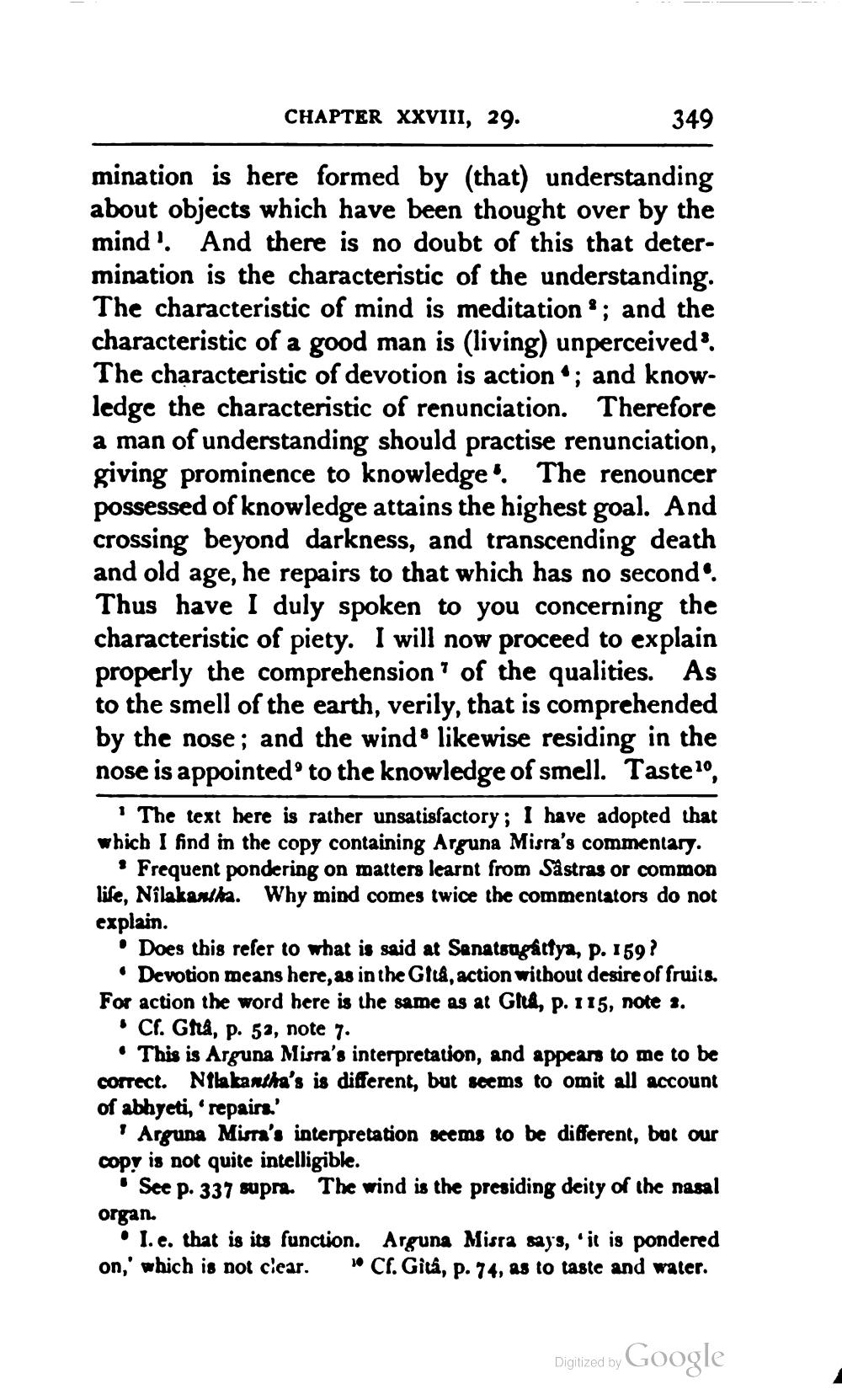________________
CHAPTER XXVIII, 29.
349
mination is here formed by (that) understanding about objects which have been thought over by the mind'. And there is no doubt of this that determination is the characteristic of the understanding. The characteristic of mind is meditation; and the characteristic of a good man is (living) unperceived'. The characteristic of devotion is action; and knowledge the characteristic of renunciation. Therefore a man of understanding should practise renunciation, giving prominence to knowledge. The renouncer possessed of knowledge attains the highest goal. And crossing beyond darkness, and transcending death and old age, he repairs to that which has no seconds Thus have I duly spoken to you concerning the characteristic of piety. I will now proceed to explain properly the comprehension of the qualities. As to the smell of the earth, verily, that is comprehended by the nose; and the wind likewise residing in the nose is appointed to the knowledge of smell. Taste",
"The text here is rather unsatisfactory; I have adopted that which I find in the copy containing Arguna Misra's commentary.
• Frequent pondering on matters learnt from Såstras or common life, Nilakanika. Why mind comes twice the commentators do not explain.
• Does this refer to what is said at Senatsogáttya, p. 1597 • Devotion means here, as in the Gftå, action without desire of fruiis. For action the word here is the same as at Gha, p. 115, note 3.
. Cl. Gtrå, p. 52, note 7.
• This is Arguna Misra's interpretation, and appears to me to be correct. Nilakantha's is different, but seems to omit all account of abhyeti,repaira'
Arguna Misn's interpretation seems to be different, but our copy is not quite intelligible.
• See p. 337 supre. The wind is the presiding deity of the nasal organ.
• 1.e. that is its function. Arguna Misra says, 'it is pondered on,' which is not clear. " Cr. Gitá, p. 74, as to taste and water.
Digitized by Google




